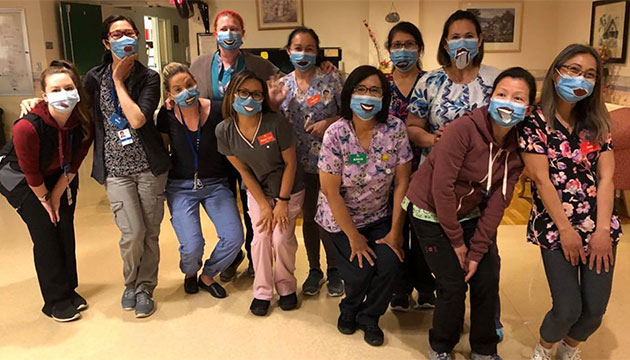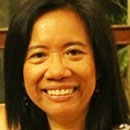This column serves as an exchange of ideas and resources for transformative change within Filipino communities in Canada through the cultivation of critical thinking and life-long learning skills.
Educators, academics and community activists promote critical thinking among citizens and learners of all ages so that we can engage in civic discourse and informed conversations about our economy, politics, health, education, culture and overall life and well-being.
We need critical thinking and life-long learning skills now more than ever in an age of information technology, social media, knowledge economy, and unimaginable crises and catastrophes such as climate change and COVID19. It is only fitting to start this column with a piece that honors Filipinos who are frontline service workers considered essential in the current pandemic.
Recognizing Filipino Service Workers During Pandemic:
Chances are seven out of ten Filipinos you know or met in Canada work in the Six Cs -- caring, clinical, cleaning, cooking, cutting, and cashiering – service sector components. Beyond revealing the structural vulnerabilities of our food production, health, and senior care systems, the pandemic has also unveiled the class, racial and ethno-national origins of those doing “dirty, difficult, dangerous,” and now, distanced work.
The pandemic exposed racialized immigrants of color, including Filipinos, doing frontline essential services needed to keep us clean, well fed, safe and healthy. It revealed previously invisible Filipinos working in meat packing plants from High-River, Alberta to Brandon, Manitoba. Laid bare are seniors care homes from Vancouver Island to Nova Scotia that Filipino nurses, health care aides, and personal support workers run.
Filipino service workers encounter the stealthy virus, causing disproportionate illness and deaths among their ranks. Some have suffered racialized misidentification, class discrimination, verbal abuse and physical attacks amidst increasing anti-Asian racism.
How do we explain Filipinos’ over-representation in the care-giving professions and other service sector work in Canada and other countries with Filipino overseas contract workers?
To answer this adequately, we need to avoid cultural explanations. Often, we hear Filipinos and non-Filipinos say, sometimes with pride, that “it is in our culture,” “it is in our personality genes.” We buy into these racial and cultural stereotypes without thinking about their empirical bases, historical origins, and social implications.
There is nothing“cultural” that makes Filipinos “genetically fit, “naturally fit” or “better-matched” for care-giving and domestic like work. We share with many cultures around the world our love for family, respect for parents, care for children, and compassion for the elderly. Why is it immigrants from the Philippines, not Pakistan, India, Iran, or Indonesia – countries with surplus labor ripe for migration – who end up disproportionately working in the Six Cs?
Instead, we need to understand colonial history, immigration policies, and post-war Philippine and Canadian national interests. Under U.S. occupation, American colonizers constructed Filipinos as “subservient,” “docile” and “industrious” workers essential to its imperial ambitions. The empire also promoted public health care, nutrition, and hygiene in the country, producing many Filipino health care professionals trained in local and foreign universities and hospitals who became early immigrants to the United States. Some of them moved to Canada in the 1950s throughout the 1970s.
As the Canadian economy expanded in the 1980s, and women entered the labor force in droves, Canada needed other country sources of domestic workers to join West Indian and Caribbean immigrant women caregivers who earlier replaced late 19th century British nannies. During this period, the Philippines was already sending contract workers to the Middle East since the 1970s, and looked to other countries in need of foreign labour to generate dollar revenues.
Canada and the East Asian economic tigers – Taiwan, Singapore, Hong Kong and South Korea – where housewives and mothers also started working outside their homes – imported Filipino domestic workers. The Canadian government introduced the Foreign Domestic Movement (FDM) policy, replaced by the Live-In Caregiver Program (LCP) in the 1990s.
Canadian policy-makers view domestic work as the natural pool for low-waged service sector jobs in schools, hospitals, restaurants, airports, and commercial establishments. Facing barriers to entry in regulated health professions, Philippine-trained professionals who migrated as caregivers retrained to become licensed practical nurses or health care aides. The majority went into low-waged service jobs. However, almost half of those who finished the LCP program still do care-giving and domestic-like work even with open work visas. Government data also shows that live-in caregivers receive comparable income levels 15 years after finishing the Program.
The burden of maintaining senior care homes that remain underfunded and under-staffed fall on undervalued and under-compensated Filipino service workers. We need to respect, recognize, and take pride in Filipinos working in essential services. They deserve nothing less from Canadians. Governments also need to develop long-term solutions to ensure fair and adequate compensation for their valuable work in the current and post-pandemic contexts.
As we pay tribute, provide redress, and show gratitude, we need to consider the implications of this over-representation. Over-representation in underpaid, undervalued service sector work has serious social, economic, and educational outcomes, especially for youth and future generations.



